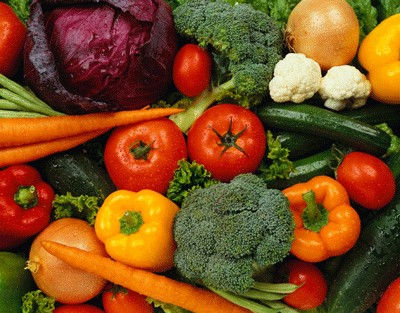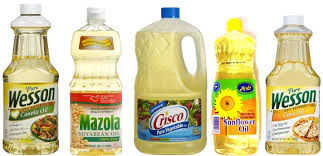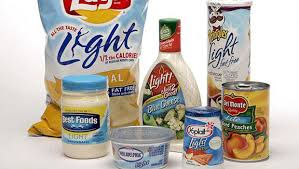Controlling Inflammation Part 3: Foods that make a difference!
- Ginny Pomeroy MAPT, NTP, BCHN
- Apr 27, 2016
- 4 min read

In parts 1 and 2, we discussed how inflammation happens in the body and how devastating sugar can be to your natural "anti-inflammatory" pathways. Here are some more actions you can take to decrease inflammation in your body: (Of course, combining all tips and tricks at the same time is the most efficient way to combat pain and inflammation!)

Increase Healthy sources of Fatty Acids in your diet. Arm yourself with plenty of good quality Omega 3 fatty acids. They can be found in many nuts, seeds, leafy greens, Oily fish, grass-fed animal meats and eggs. Supplementing with high quality fish oil, cod liver oil or flax seed oil may be helpful. (Note: Protect your delicate oils from heat, light, and oxygen, as they are very vulnerable to becoming rancid. They should be stored in a cool, dark place. Buy "first cold pressed" oils in small amounts and be sure to check their “pressed on” dates. It is better to replace these often to maintain their freshness.
Other important healthy sources of fats include Extra Virgin First Cold Pressed Olive Oil, Avocado Oil, and Extra Virgin Coconut oil, which enhance your body’s ability to utilize Omega 3 Fatty Acids.
Avoid all sources of “damaged fats” such as trans-fats and rancid oils as they are a source of irritation to the body and thus will INCREASE the inflammatory response. It is important to understand that overly processed vegetable oils such as corn oil, soybean oil, canola oil, cottonseed oil and safflower oil have all been exposed to heat, light, oxygen. Often chemical solvents are also used to extract the oil from their seeds, and clean and deodorize it during the industrialized processing for the mass market. This means that by the time you consume these oils, they are damaged and have gone rancid!

Another key to understanding the relationship of Fats in our diet to inflammation is to go back to those Prostaglandin Pathways that we discussed in Part 1. There are 2 types of fatty acids that we must get from our food and these are known as Essential Fatty Acids (EFAs). Omega 3 and Omega 6 Fatty Acids are “essential” since our bodies cannot manufacture them on our own from other sources. Omega 3 FAs stimulate the anti-inflammatory pathway while Omega 6 FAs become pro-inflammatory. Therefore, it is important to make sure that you get the same amount of Omega 3 FAs as Omega 6 FAs!! They should be in a 1:1 ratio. Here is the first Kicker: many of our “vegetable oils” such as corn oil, sesame oil, soybean oil, come from plants that are high in Omega 6 FAs. These oils are far more prevalent in all processed foods and therefore most people who eat a typical “American diet” have far more inflammatory Omega 6s circulating in their bodies than the anti-inflammatory Omega 3 FAs.

Take away message: AVOID PROCESSED FOODS AS MUCH AS POSSIBLE AND EAT WHOLE FOOD SOURCES OF HEALTHY OMEGA 3 FATTY ACIDS.
Here is the 2nd kicker: when you cook with polyunsaturated oils that contain omega 3s and omega 6s (ie: canola oil, grapeseed oil, peanut oil, safflower oil, etc.) they become even more damaged.

Take away message: only use safe high quality cooking fats such as real lard rendered from a pastured animal (not Crisco!), organic butter, Ghee, or Coconut oil. These fats are “saturated fats” which make them more resistant to damage from high heat.
Note: What about Olive Oil?? Yes, you can use olive oil in Low heat applications. Olive oil is a “monounsaturated fat” which makes it only semi-resistant to becoming damaged by heat. Please do not heat your olive oil above 325 degrees F.
Finally, Look out for “Trans-fats” that come from vegetable oil that has been put through a manufacturing process called “hydrogenation”. Essentially, liquid oil is processed into solid form by causing the structure of the fatty acid to change. (ie: it becomes “damaged”!!)
Take away message: If a food item contains “hydrogenated” or “partially hydrogenated” oils, they are best AVOIDED!!


What Else can we do??
Drink plenty of water. Your body needs to be able to efficiently “flush out” the damaged tissue, and other metabolites that are trapped in the tissues that are potentially causing more irritation. Drink ½ your body weight in oz. of pure water per day. (ie: if you weigh 100 lbs, you should drink at least 50 oz. of water/day). Other factors such as whether you exercise intensely, hot and dry climate conditions, and/or you consume diuretic substances such as coffee, tea, soda, sugary drinks or alcoholic beverages, will cause you to need MORE water to compensate for your bodies added stressors.

Increase your consumption of antioxidants! Eat colorful fruits and vegetables in their many different forms! These foods contain bioflavonoids that have been shown to counteract the negative effects of oxidative stress (ie. Irritation) on our tissues.
Good sources of antioxidants include: blueberries, raspberries, colorful salads and sautés, green teas, herbs and spices especially turmeric, cloves, ginger and rosemary. (http://articles.mercola.com/sites/articles/archive/2015/02/02/anti-inflammatory-foods-herbs-spices.aspx).

Decrease exposure to any substances that you may be allergic to or sensitive to. For many people, eliminating these major food categories can be helpful in mitigating their inflammation response. Common food allergens include: Wheat/gluten, dairy/casein, soy, peanuts, tree nuts, and eggs. When you decrease your exposure to allergens, your over-burdened immune system can direct all of its attention to the inflammation problem that you are trying to deal with.

In my last post, we discussed how consuming sugar can increase your body-burden of inflammation by preventing our natural “anti-inflammatory” pathways from functioning properly. Now you have even more "tools" to combat inflammation!!
Here's to your health!!
Thank you for reading this series on Inflammation!




Comments